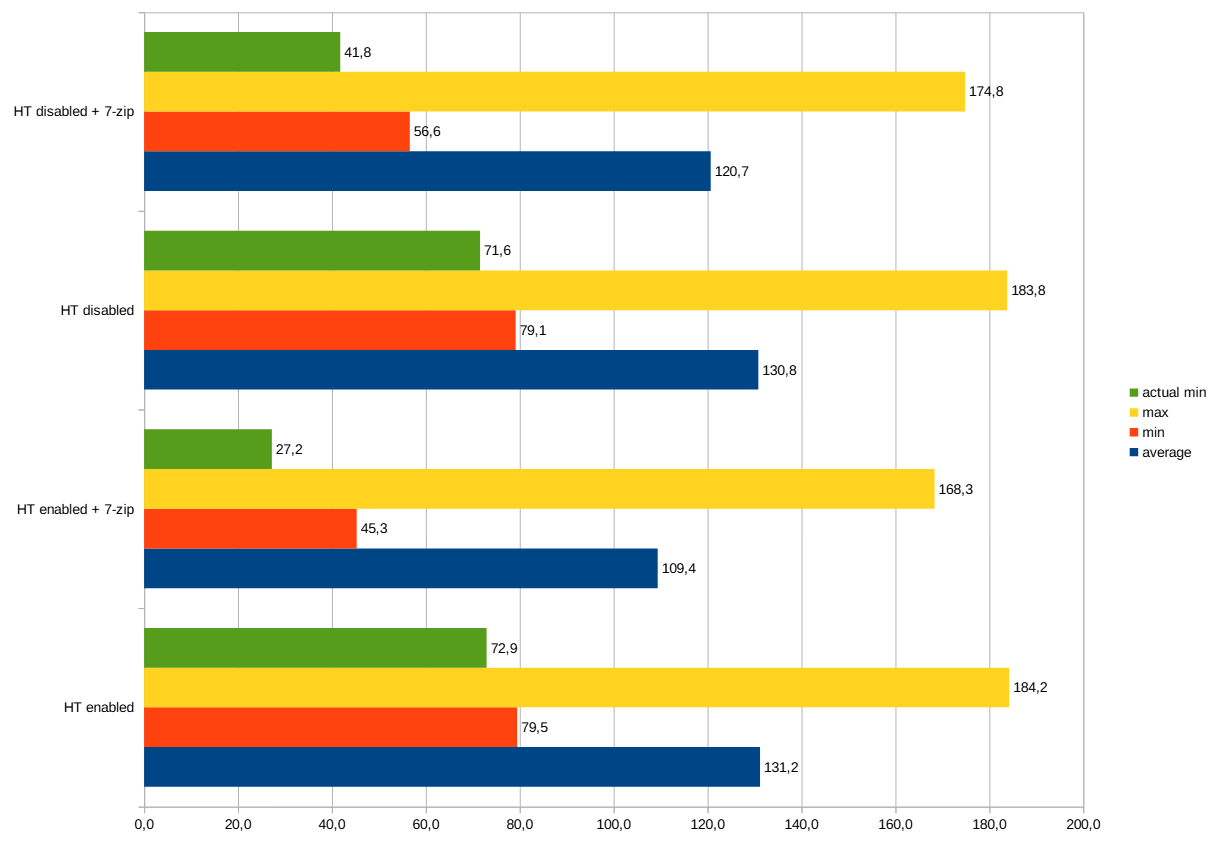XoR_
[H]ard|Gawd
- Joined
- Jan 18, 2016
- Messages
- 1,568
Hyper Threading splits core in to two threads and each thread has the same performance as without HT if second thread remains unused. When such second thread being used then each thread on given core can get around 60-70% performance of single thread. This is what of course leads to overall performance improvements HT brings.
The possible issue is that when having HT enabled is that running background application which uses lots of CPU time will get scheduled on the same cores as game is using through additional hardware threads Hyper Threading creates.
It does indeed lead to decreased performance in games when running heavy background tasks and can be easily confirmed running heavy background application and checking FPS in game.
Disabling HT solves this issue because game has higher priority and it will always get as much CPU time as it needs.
Intel for Alder and Raptor Lake with Microsoft came with solution to prevent background application to run on P-cores when playing games but this sounds like excessive solution which often can lead to underutilization of CPU and much longer run time of background tasks than if it was allowed to use free P-core resources. In this case background performance can be better with this Thread Director thing disabled and Hyper Threading also disabled to not affect game performance.
I see massive increase in power consumption and fan noise with HT enabled for rather unimpressive performance boost in multi-threaded applications. This alone makes HT rather hard sell and performance issues with Thread Director or without it, in games or even in desktop applications, make it even more pointless to have HT enabled. The only advantage is that if I really need certain multi-threaded task to get done as quickly as possible and I either keep it foreground or ignore decreased performance when doing other things then HT will give some extra performance.
What are your opinions on this topic?
The possible issue is that when having HT enabled is that running background application which uses lots of CPU time will get scheduled on the same cores as game is using through additional hardware threads Hyper Threading creates.
It does indeed lead to decreased performance in games when running heavy background tasks and can be easily confirmed running heavy background application and checking FPS in game.
Disabling HT solves this issue because game has higher priority and it will always get as much CPU time as it needs.
Intel for Alder and Raptor Lake with Microsoft came with solution to prevent background application to run on P-cores when playing games but this sounds like excessive solution which often can lead to underutilization of CPU and much longer run time of background tasks than if it was allowed to use free P-core resources. In this case background performance can be better with this Thread Director thing disabled and Hyper Threading also disabled to not affect game performance.
I see massive increase in power consumption and fan noise with HT enabled for rather unimpressive performance boost in multi-threaded applications. This alone makes HT rather hard sell and performance issues with Thread Director or without it, in games or even in desktop applications, make it even more pointless to have HT enabled. The only advantage is that if I really need certain multi-threaded task to get done as quickly as possible and I either keep it foreground or ignore decreased performance when doing other things then HT will give some extra performance.
What are your opinions on this topic?
![[H]ard|Forum](/styles/hardforum/xenforo/logo_dark.png)

